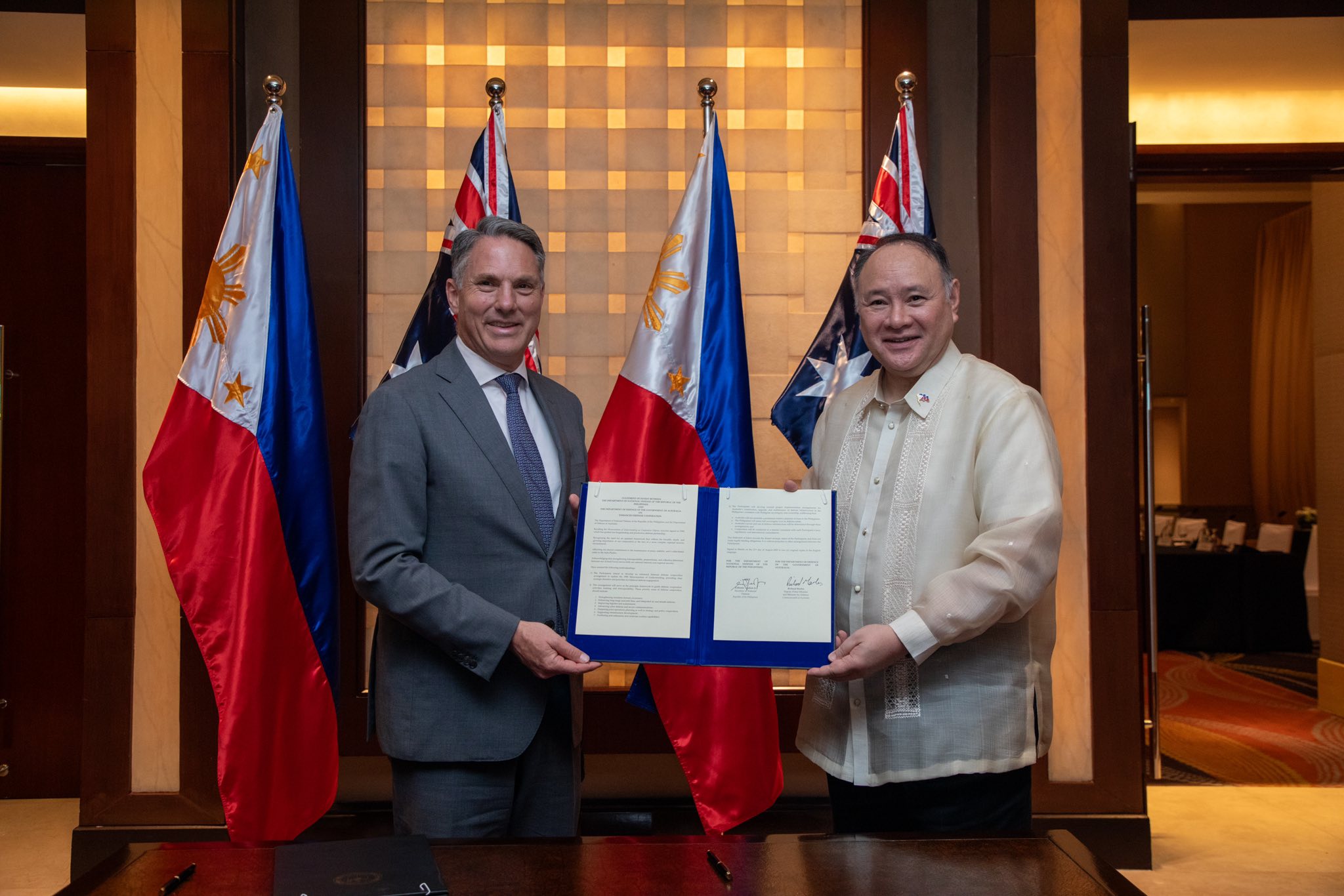
By Priam Nepomuceno | Philippine News Agency
The Philippines and Australia on Friday signed a statement of intent to pursue a Defense Cooperation Agreement that aims to further boost security ties.
The agreement is expected to be completed and signed by next year, Australian Deputy Prime Minister and Defense Minister Richard Marles said in a media briefing after the 2nd Philippine-Australia Defense Ministers Meeting in Makati City.
“Today, we have, as you have just seen, also signed a statement of intent to pursue a Defense Cooperation Agreement that we will seek to sign this time next year,” Marles said.
“This will be a really important step forward in terms of our defense relationship,” he added.
Marles said the agreement will build on the 1995 Memorandum of Understanding between the Philippines and Australia.
“It will encapsulate the totality of our engagement in defense, but it will include, for example, a commitment to see us having annual defense ministers’ meetings. It will look at how we can do more in terms of coordinating our exercise and operation tempo between our two countries,” he said.
The agreement will also look into how Australia can do more in terms of infrastructure development in the Philippines, which Marles said can benefit the Armed Forces of the Philippines.
“To that end, we have also, as part of our outcomes, agreed to pursue a defense infrastructure plan. Right now, Australia is pursuing eight different infrastructure projects across five different locations here in the Philippines,” Marles said.
Department of National Defense Secretary Gilberto Teodoro Jr. said the defense agreement will place “in concrete form” the partnership between the Philippines and Australia.
He said it is “appropriate” for the agreement to be signed next year when the Philippines hosts the Association of Southeast Asian Nations (ASEAN) Summit meetings.
Teodoro thanked Australia for supporting the Philippines’ rights under the United Nations Convention on the Law of the Sea.
“We also are working together heavily in this region, in the Indo-Pacific Region, in order to uphold our shared values of international law amidst increasing shared challenges,” he said.
